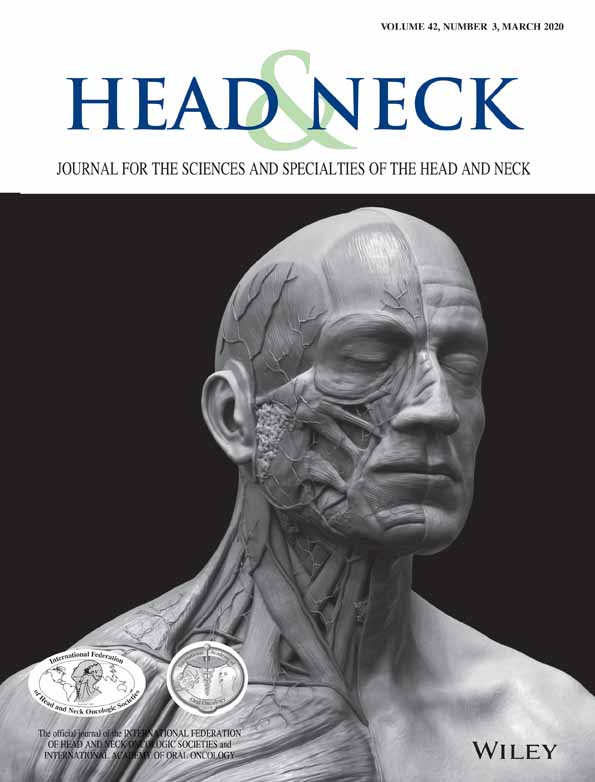Pathologic response to neoadjuvant chemotherapy in HPV-associated oropharynx cancer
Funding information: George Washington University Institutional Review Board, Grant/Award Number: IRB 061431; Research Ethics Board of McGill University Health Centre, Grant/Award Number: MP-37-2018-3568; American Head and Neck Society
Abstract
Background
A paradigm shift has led to de-escalation trials for the treatment of HPV-positive oropharynx cancer (OPC). The objective of this study was to assess the ability of tumor volume reduction on imaging to predict pathological response to neoadjuvant chemotherapy in patients with HPV-positive OPC.
Methods
A prospective observational study of 54 patients with HPV-positive OPC enrolled in a clinical trial of neoadjuvant chemotherapy followed by surgery was performed. Patients underwent three cycles of induction chemotherapy (cisplatin/docetaxel); prechemotherapy and postchemotherapy imaging were obtained. Receiver operating characteristic curves and logistic regression analyses were used.
Results
The complete pathologic response (pCR) rate at primary and nodal sites were 72% and 57%, respectively. Tumor volume reduction of ≥90% following induction chemotherapy predicted pCR of the primary tumor.
Conclusions
Neoadjuvant chemotherapy followed by definitive transoral surgery is a new paradigm worthy of further investigation and MRI is a reliable modality to assess preoperative response.
CONFLICT OF INTEREST
The authors declare no potential conflict of interest.




